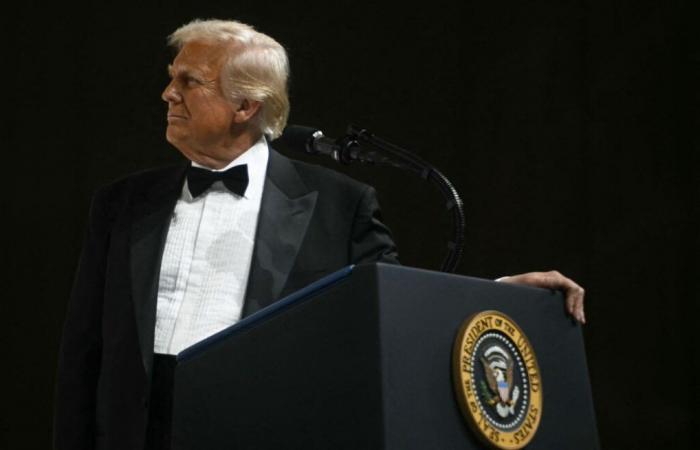Freshly returned to the White House, Donald Trump immediately launched his project to dismantle the American Administration and put senior federal officials under his thumb through a series of presidential decrees signed in the first hours of his new presidency.
He, among other things, reintroduced a directive adopted in the last days of his previous government, and revoked by Joe Biden, calling for the withdrawal of job protection from several thousand civil servants. The new occupant of the Oval Office has also given himself the power to fire several senior officials who seek to put obstacles in the way of his new policies or who disclose information on the decision-making of the American executive.
The measure directly attacks the independence of employees serving citizens and reiterates the intentions of the new government to constitute a politicized public service now called to “serve at the pleasure of the president”, indicates the text of one of the decrees.
“We are witnessing a blatant attempt to corrupt the Federal Administration by removing employees’ due process rights so that they can be fired for political reasons,” said President Everett Kelley in a statement. of the American Federation of Government Employees (AFGE). “He will eliminate hundreds of thousands of federal, professional, nonpartisan public service jobs and replace them with positions subject to the will of one man. »
“This unprecedented takeover of executive power will create an army of sycophants beholden only to Donald Trump, and not to the Constitution or the American people,” he added. The integrity of the entire public administration could be irreparably compromised if this is not stopped. »
Donald Trump also ordered a hiring freeze across the federal Administration, particularly targeting the Internal Revenue Service (IRS), which received significant financial aid from President Joe Biden and Democrats in Congress. A necessary decision, according to the new president, pending the completion of a broader plan to reduce the number of civil servants.
This mission has been entrusted to the new Department of Government Efficiency, a temporary agency founded Monday by decree and which, for the next 18 months, will be responsible for “modernizing federal technology and software to maximize the efficiency and productivity of the government,” the text indicates. Its main leader, billionaire Elon Musk, promised, during the electoral campaign alongside the populist, to seek 2,000 billion US dollars in cuts, a sum larger than the combined budgets of the departments of Defense, Education and Homeland Security.
Nebulous and already contested
Barely launched, however, the agency is already being challenged in court, due to the opacity surrounding it. In a complaint filed Monday, a group of defenders of public services and democracy believes that this department, created within the executive office of the president, meets the conditions to be considered a “federal advisory committee”. This category of organization should therefore be subject to regulation to ensure that the government receives transparent and balanced advice. However, the agency fails to have “fairly balanced” representation, to keep records of its meetings and to be open to public scrutiny, as required by law, its critics say.
-The precise nature of the government efficiency plan desired by Donald Trump is still nebulous. Its architects, however, affirm that secrecy is an essential condition to prevent legal action from derailing the project.
Several of Donald Trump’s first executive orders seek to create fear and threaten all government employees, to prevent possible acts of resistance to the implementation of his radical conservative agenda.
He revoked the security clearances of 51 former U.S. intelligence officials who signed a letter in 2020 claiming that emails from a laptop belonging to Hunter Biden bore “all the classic hallmarks of a Russian disinformation operation.” His former national security adviser, John Bolton, is on the list.
Rule by fear
The climate of fear also risks settling in among civil servants, called on Monday evening, during the signing of his first decrees in front of a crowd gathered at the Capital One arena for the post-induction festivities, to “immediately return to work at full time in person.” This decision seeks to provoke voluntary defections among several civil servants who would not wish to submit to this decree.
Remote work by civil servants, which has increased in the wake of the pandemic, is an irritant in conservative ranks, even though 46% of federal employees are eligible for teleworking but barely 10% of all employees. State employees, 228,000, work in a fully remote position without any presence in the office, according to data submitted to Congress last August by the US Office of Personnel Management.
“We sincerely hope that the new administration will put the American people and the common good first,” said Skye Perryman, president and CEO of Democracy Forward, a democracy advocacy group, following the swearing-in of Donald Trump. “But we also see that [Donald Trump]by naming the architects and authors of the 2025 Project [un programme de réformes ultraconservatrices exposé durant la campagne électorale] in key positions, makes it clear that extremism will take precedence over the good of the American people and our democracy. »
She adds: “The dangerous policies of Project 2025 threaten our rights, our health care, our wages, our national security and our nation’s greatest values. These threats are not mere abstractions: they include concrete actions to end the independence of federal agencies, to harm our public servants, dedicated and independent workers, individuals who take an oath to support and defend the Constitution, instead of pledging allegiance to a political ideology. »






